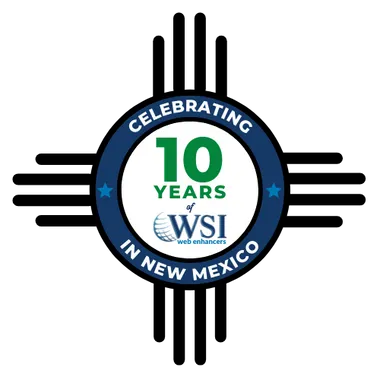Understanding the Shift: From Information Scarcity to Information Abundance
In a world where knowledge was once hard to find, marketing content centered around education became the cornerstone of successful campaigns. Providing useful, accurate, and relevant information not only helped companies establish authority but also gave them a competitive advantage. However, this traditional approach has lost its edge as we transition from an era of information scarcity to one of information abundance.
The internet has fundamentally transformed the value of educational content. With the advent of artificial intelligence, machine learning, and vast amounts of data at our fingertips, information has become a commodity. Anyone can produce thousands of SEO-optimized guides and articles on virtually any topic, and AI-generated content further accelerates this trend. As a result, educational content no longer differentiates brands—it’s become the baseline expectation.
The Era of Information Scarcity
Back when information was scarce, search engines were filled with semi-relevant resources, fragmented insights, and hard-to-find solutions. If you were able to consolidate this knowledge into a well-structured piece, you would instantly stand out as an authority. Back then, the value proposition for marketing was simple: Find obscure information, repackage it, and present it as new. This strategy worked because content was expensive to create, and relevant information was often buried in obscure corners of the web.
Brands were rewarded for being the first to piece together meaningful content. The competition was low, the demand for educational resources was high, and marketers took full advantage of this information asymmetry. This was the golden age of educational marketing, where every “how-to” guide or “ultimate resource” had a high likelihood of driving traffic and engagement.
The Era of Information Abundance
Fast forward to today, and the landscape has changed dramatically. With the advent of AI tools like large language models (LLMs), even the most niche and specific questions can be answered almost instantly. Companies no longer need teams of content writers to produce basic SEO content; they can generate thousands of articles at a fraction of the cost.
In this new paradigm, information abundance is the norm. The sheer volume of content makes it difficult for searchers to distinguish between good and bad sources. Google’s algorithm updates reflect this shift, increasingly prioritizing trusted sources and brands over mere keyword-rich content.
It’s not enough to publish “educational” content anymore because most questions have already been answered hundreds of times over. When searchers are bombarded with content from every direction, it becomes critical for brands to offer something different—a unique voice, experience, or perspective.
Marketing in the Age of Information Abundance
Given that the value of purely educational content has diminished, how can marketers make an impact in the era of information abundance? The answer lies in redefining the role of content marketing and exploring new strategies that go beyond basic information-sharing.
1. Develop Unique Information
When every brand is publishing similar content, differentiation becomes key. Even if the core information remains the same, the way it is presented, contextualized, or tailored can make all the difference. Think of it as creating different “flavors” of content for the same topic. For example, instead of writing another generic guide on social media marketing, you could focus on “social media marketing for sustainable fashion brands” or “leveraging Instagram for local nonprofits.”
This approach doesn’t necessarily create new information but repackages it in a way that resonates more deeply with a specific audience. The more specialized your content, the stronger the connection you’ll build with niche communities that feel underserved by generalist resources.
2. Create New Information
While more challenging, creating new information sets your brand apart as a thought leader. This can be achieved through original research, running unique experiments, or offering novel insights based on your own experience or data. Producing genuinely new information is resource-intensive, but it offers long-lasting rewards, as no competitor or AI model can easily replicate it.
3. Move Beyond Education: Embrace Entertainment and Engagement
If educational content is no longer enough to capture attention, what’s next? Entertainment and engagement. Brands like HubSpot and Wistia have embraced the idea of creating media brands within their core business, focusing on content that is not just informative but also entertaining. Consider launching a podcast series, creating video content that tells a compelling story, or producing interactive webinars and events.
This shift to entertainment does not mean abandoning education altogether; rather, it means incorporating it into a richer, more engaging experience. Entertainment is subjective, risky, and harder to execute well—but the payoff is worth it. If successful, it builds a deeper emotional connection with the audience and creates brand affinity that educational content alone can’t achieve.
Conclusion: Thriving in the Age of Information Abundance
The transition from information scarcity to information abundance has fundamentally changed the nature of digital marketing. The once-powerful strategy of creating educational content now only serves as a baseline requirement. To stand out, brands must innovate: offering new flavors of information, generating unique insights, and moving beyond education to embrace entertainment and audience engagement.
Marketers must recognize this shift and adapt their strategies accordingly. In this new era, it’s not just what you say that matters—but how you say it and the unique experience you offer. Those who can rise above the sea of sameness will carve out a lasting place in the minds and hearts of their audience. Contact WSI today to learn how to stand out in today’s information landscape.

Jukka founded WSI Web Enhancers in 2012. His progressive and pioneering SEO approaches help businesses increase traffic while improving conversion rates. As an accomplished digital marketing authority, he spins effective web design, SEO, and social media engagement into winning strategies for local and national companies.





